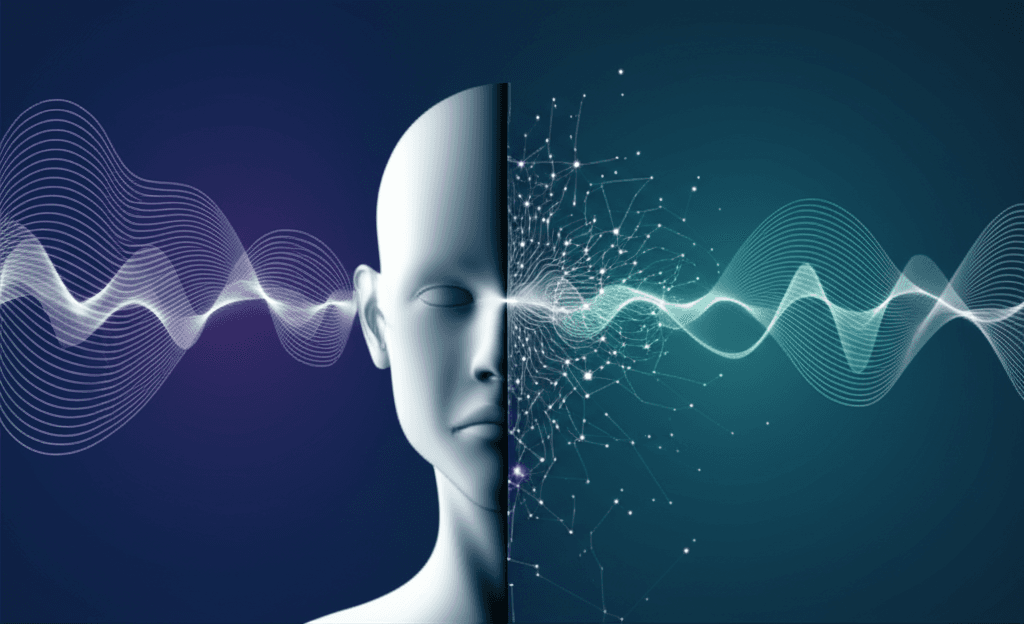AI Voices So Realistic They Could Pass Turing Test This Year
ElevenLabs CEO predicts AI voices will soon mimic humans flawlessly, ushering in new frontiers and urgent ethical dilemmas.
July 2, 2025

The field of artificial intelligence is on the cusp of a major breakthrough, with AI-generated speech becoming so realistic it may soon be indistinguishable from human speech. Mati Staniszewski, CEO of the AI voice technology company ElevenLabs, has stated that AI speech could pass the Turing test as early as this year.[1][2] This ambitious prediction highlights the rapid advancements in speech synthesis and points toward a future where voice becomes a primary mode of interaction with technology. The Turing test, originally proposed by Alan Turing in 1950, is a benchmark for artificial intelligence where a machine's ability to exhibit intelligent behavior is evaluated based on how well it can mimic human conversation.[3][4] Passing a verbal version of this test would mean that a human evaluator would be unable to reliably tell the difference between a human and an AI in a spoken conversation.[5]
Founded in 2022, ElevenLabs has quickly become a prominent player in the AI voice generation space, achieving a valuation of over $3 billion.[6][7][8] The company, started by childhood friends from Poland, was born from their experience with poorly dubbed American movies.[6] This led them to develop AI tools that could make content universally accessible in any language or voice.[6] ElevenLabs utilizes deep learning models to generate natural-sounding speech, moving far beyond the robotic outputs of older text-to-speech systems.[9][10][11] Their technology analyzes the nuances of human speech, including intonation, emotion, and cadence, to create highly realistic and expressive audio.[12][10] The platform offers capabilities like voice cloning from short audio samples, creating entirely new synthetic voices, and generating multilingual audio content in over two dozen languages.[13][14][15]
In his discussion about achieving this milestone, Staniszewski identified a crucial trade-off between expressiveness and reliability in AI speech models.[2][1] He explained that ElevenLabs is developing two types of models: a "cascading" model and a "truly duplex" model.[2][1] The current cascading system separates the tasks of speech-to-text, language generation, and text-to-speech.[1] This method is more reliable but can be less contextually responsive and may have higher latency.[2][1] The forthcoming duplex model, which integrates these processes, promises to be quicker and more expressive, but potentially less reliable.[2] Staniszewski acknowledged that latency and the seamless fusion of language models with audio remain significant engineering hurdles that no company has yet perfected at scale.[2] The challenge lies not just in the speed of generation, but also in capturing the subtle, context-dependent emotional cues that are intrinsic to human communication.[16]
The implications of AI speech passing the Turing test are vast and multifaceted. For the media and entertainment industries, it could revolutionize content creation, from generating realistic voiceovers for videos and podcasts to creating dynamic, emotionally responsive characters in video games.[14][15] It also has significant potential for accessibility, providing natural-sounding voices for those with speech impairments and enabling real-time translation that preserves the speaker's vocal identity and emotional tone.[17][18] However, this technological leap also raises significant ethical concerns. The ability to perfectly clone a voice brings risks of misuse, such as creating fraudulent audio for impersonation or spreading misinformation.[19] These concerns highlight the need for robust safeguards, including consent for voice cloning and clear regulations to prevent malicious use.[20][21]
In conclusion, the prospect of AI-generated speech becoming indistinguishable from a human's marks a pivotal moment in the development of artificial intelligence. The work being done at companies like ElevenLabs is pushing the boundaries of what is possible, driven by sophisticated deep learning techniques.[22][9] While technical challenges surrounding reliability, expressiveness, and latency are still being addressed, the CEO's prediction of passing a verbal Turing test soon signals immense confidence in the technology's trajectory.[2][1] As this technology continues to evolve, it will undoubtedly transform how we create and consume content, interact with devices, and communicate across language barriers, while also demanding a proactive approach to the complex ethical questions that will inevitably arise.[23][24]
Sources
[2]
[4]
[8]
[10]
[12]
[13]
[15]
[16]
[17]
[18]
[19]
[20]
[21]
[23]
[24]